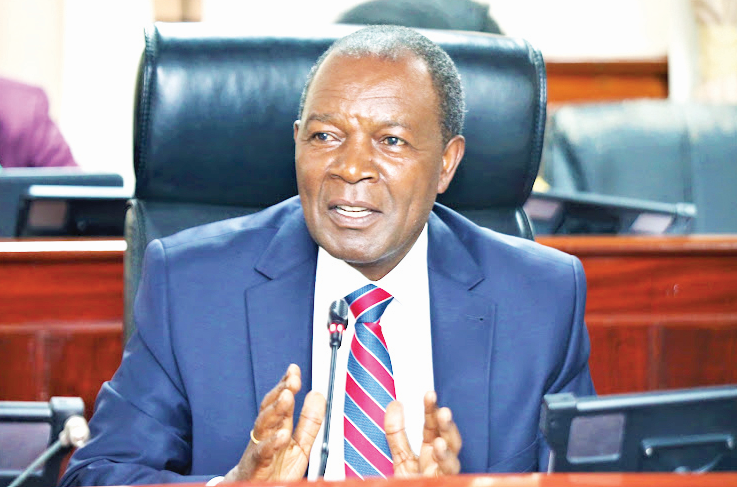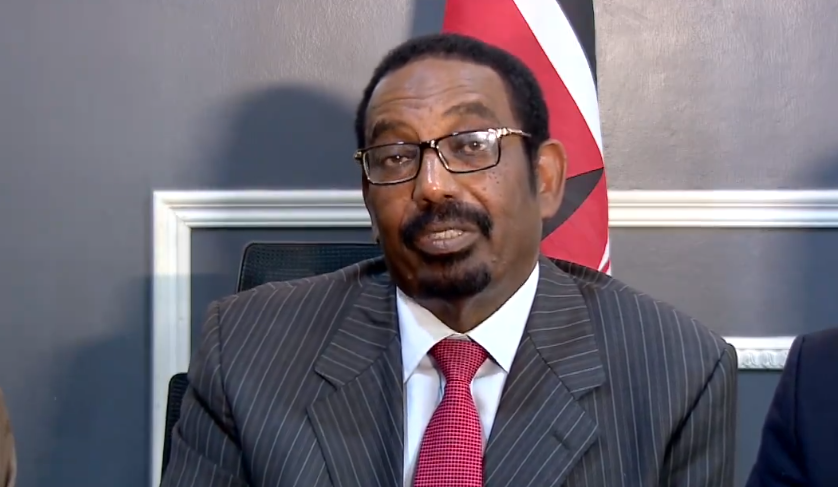Ndung’u defends shilling performance against dollar

Treasury Cabinet Secretary Njuguna Ndung’u has passionately defended the government-to-government oil import deal that was supposed to help stabilise the shilling against the dollar, suggesting the local currency is doing just fine.
He contended that the exchange rate would have faced more severe challenges if not for the government’s strategic move in the international oil market.
Ndung’u who appeared before the National Assembly to respond to members’ questions, asserted that the government’s proactive approach was critical in preventing further depreciation of the Kenyan shilling.
“It would have been worse were it not for the G2G deal, we will let the market forces decide the exchange rate,” he said.
However, Members of Parliament objected to the remarks by the CS that the shilling would been performing worse than it is currently doing against the dollar. Led by Suna East MP Junet Mohamed, the lawmakers castigated the remarks made by the CS in explaining what the government is doing to address concerns over the country’s exchange rate.
“The government-to-government oil import deal was supposed to help us stabilise the shilling. Yet it has depreciated by 25 per cent since the deal was signed. The ministry says it would have been worse… share with us how worse. Would it be Sh200 or Sh300?”? asked the legislator.
Ndung’u further argued that the global de-dollarisation push by BRICS nations would play a pivotal role in alleviating the pressure on the foreign exchange market.
De-dollarisation, he explained, would reduce the global demand for dollars, thereby positively impacting the exchange rates of other currencies, including the Kenyan shilling.
“The de-dollarisation by India, China, Saudi Arabia, Russia and Malaysia would result in significant reduction in US$ demand locally since these economies account for about 70 per cent of Kenya’s trade deficit,” said Ndung’u. However, Saku MP Dido Rasso argued that Kenya’s economy is not ready for de-dollarisation since most businesses depend on the US currency to meet their supply demand.
Recent reports by Reuters painted a different picture, stating that the dollar’s share of global reserves had increased from 58 per cent to 59 percent in the first quarter of 2023, casting doubt on the effectiveness of de-dollarisation efforts.
Despite the conflicting global trends, Ndung’u affirmed his commitment to letting the market determine Kenya’s exchange rate. As at September 27, the Kenyan shilling was trading at Sh147.9 against the dollar, marking a concerning 25 per cent decline year-to-date according to Central Bank data.
At the same time, National Treasury confirmed the payment of Sh35 billion ($238 million) for the first set of maturing Letters of Credit (LCs) under the government-to-government (G-to-G) fuel deal.
These payments are part of agreements signed in March 2023 with key petroleum suppliers such as Aramco Trading Fujairah FZE, Abu Dhabi National Oil Company (ADNOC), Global Trading Ltd, and Emirates National Oil Company (Singapore) Private Limited (ENOC).
The G-to-G arrangement was designed to address US Dollar liquidity challenges and mitigate exchange rate volatility stemming from a global dollar shortage.
By securing these strategic fuel agreements, Kenya aimed to shield itself and the region from potential disruptions in petroleum supply, safeguarding against economic shocks.
The Treasury’s approach aligns with a broader macroeconomic strategy, anticipating increased foreign reserves and reduced demand for foreign exchange.
Ndung’u stated: “From a macroeconomic perspective, the country is set to realise greater benefits from an accumulation of foreign reserves.”
The G-to-G arrangement has seen the settlement of the first three maturing LCs, totalling $238,842,710.12, for the months of March, April, and May without causing distortions in the forex market.
This has showcased the government’s commitment to ensuring seamless and timely payments and maintaining stability in the foreign exchange market.
Under this arrangement, funds are kept in escrow accounts, both in USD and Kenya Shillings, ensuring the availability of funds for all maturing LCs.












